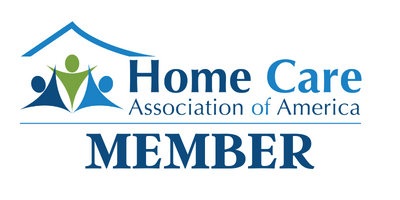The responsibilities of caring for aging parents are numerous. Having siblings and family members to help with the day-to-day tasks can really help spread the load so one individual isn’t left feeling overwhelmed. More people mean more hands on deck to divide responsibilities. It also gives you all more individual support as you work as a team to care for your loved one.
Sharing the responsibilities will be seen as a blessing for some of your family, but others may see it as more challenging. It might be difficult for some to let go of control, to trust others to provide the same level of care that they do. While this approach of including the family in sharing duties, it’s best to address it directly instead of making assumptions or having expectations.
Sharing Eldercare Responsibilities – The Challenges
Unfortunately, the dynamics of families are usually set early in our childhoods, and often don’t really change when we are adults. Bring in the needs of a senior and the demands of caregiving, and old wounds and dysfunctions soon resurface.
It is important to be honest with yourself and one another that childhood patterns may influence how you interact with one another today. Sibling rivalries often rear their ugly head. Dominant personalities likely haven’t changed, and may cause power struggles.
Old childhood patterns can create a challenging dynamic for adult children working together.
Keep in mind that you and your siblings are each likely experiencing strong emotions. When we behave from emotions, we usually feel more judgement toward others. Everyone brings their own set of skills and resources to contribute. To seek “fairness” and balance in roles and responsibilities is a lofty goal. Consider letting everyone choose the way they can help the best.
Everyone is going to have their own ideas about how to do things, what the priorities are, and how to handle the very challenging position of being a caregiver for a parent. Keep in mind that the priority is the parent, and providing them with the best, safest care possible.
Sharing Eldercare Responsibilities – The Positives
What if you were able to pull together as a team with your family members to share the caregiving responsibilities and support each other? Wouldn’t that really be ideal – both for the demands placed on any one individual, but also in the interest of providing the best care possible to your parent.
Working together as a team to care for a parent is a great opportunity to come together and heal past relationship issues. People change as they get older. Yes, people can grow and evolve! Let squabbles and disagreements of the past go. Sharing eldercare duties is a great opportunity to work together, get to know each other as adults, and build new relationships.
Working together as a team is a wonderful opportunity to heal old wounds and get to know each other as adults.
More people on board to share responsibilities really will help! Providing day to day care of a senior, especially one with any health issues, is extremely demanding. Caregiver burnout is a very serious (and real) issue. One person trying to manage it all is unrealistic and will eventually cause greater problems. Let people help in ways they are comfortable. Maybe one sibling is good at cooking and meal planning and can pitch in there. Another may be happier providing transportation or running errands.
Everyone doesn’t have to be involved in every detail – let people work from their strengths.
Back to the goal being providing the best care for your parent. Having more people helping out will offer more variety of visitors and people to talk to. Seniors stuck at home get very lonely. Isolation leads to feelings of depression, weakened immune systems, and prolonged illnesses. Consider more people helping as more companionship and distraction for your parent. They will love all the attention!
Here are some strategies for creating a cohesive caregiving plan:
- Hold Family Meetings
It’s worth the extra energy to talk things over face to face as early on as possible. If people absolutely can’t get together in person, hold a video conference among your group so people can talk more naturally. The worst situation will be to try to figure things out during an emergency. The sooner you get on the same page about medical care, living arrangements, daily tasks necessary, finances and any legal matters, the better off your group will be. - Decide on Roles
Not everyone has to do every task. Set out a list of what needs to happen daily, weekly, etc. and make a plan. Without a plan, it’s too easy for one sibling to take everything on. If one sibling lives closer than everyone else, it’s easy for them to become overburdened. Use your family meetings to determine what each family member will do from housekeeping and chores to paying bills to preparing meals. - Share Information
Work at keeping each other informed and up to date. Consider a family group text or email group. Check out the many caregiver apps available to help you all stay informed and up-to-date on medications, appointments, and other important information. If everyone feels they are informed, you will find you have more options and it will ease anyone’s doubts. - Have Compassion
Remember that not everyone thinks the same way you do, or has the same schedule or flexibility. Your brothers and sisters may be going through a tough time of their own, or have difficulty dealing with your parents getting older. Having compassion – for yourself and each other – will keep up your strength and build better relationships. Compassion goes a long way in helping everyone communicate with each other about sensitive issues. - Bring in Outside Experts
Geriatric and elder care services work with families to coordinate all aspects of care. Agencies can provide licensed healthcare practitioners, and comfort care providers to help. Your parent’s physician or a hospital social worker can guide you to the resources you need.
If you’re searching for help with caregiving for a parent, Arcadia New England can help. We are experienced with all the various issues and challenges of aging adults, their care needs, and working with family caregivers.


